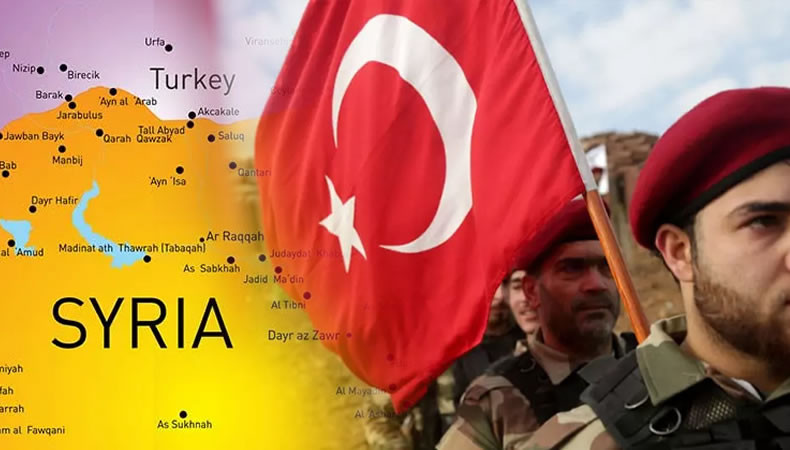Is Turkey Trying To Swallow Parts Of Syria To Satiate Its Appetite For Power?


The protests grew over suggestions that Ankara was considering normalising ties with Damascus and its ruler, Bashar Assad. The latter is not accepted by all; only those who he has influenced through sweet words and power show and managed to keep himself in good books and hold the government ransom, without showing any clemency to the people of the nation.
Turkey has deployed upto 5,000 troops and is spending $2 billion a year in its occupied areas. There is a strange spread of ownership and power happening. For one the Turkish lira has replaced Syrian currency. Turkish banks and the Turkish post office are the only financial services running there. Children are now learning Turkish as a second language at school, the Turkish Red Crescent operate the hospitals, Turkish ministries direct education and religion, and power comes from Turkey’s grid. Turkish can now be found alongside Arabic on street signs, while some landmarks, such as Saraya Square in Afrin, have been renamed after Turkey’s President Recep Tayyip Erdogan.
Related Posts
Everywhere you see, Turkey is trying to claim its ownership, smoothly and gradually. While this part of Syria does not come under the Turkish government control; yet its administrators have all been trained in Turkey.
Officially these zones are ruled over by Turkey’s Syrian allies — local councils and the Syrian National Army — but these are all salaried and trained by Ankara and it is widely acknowledged they have little independence.
If one is to inquire, Turkey will say it does not claim any authority over the area. But on the flipside, it also does claim that by providing services it is giving northern Syrians a better life than if they remained in Assad-controlled Syria or in refugee camps elsewhere. This psychological game is enough to those staying there feel safe under Turkish way of doing things.










